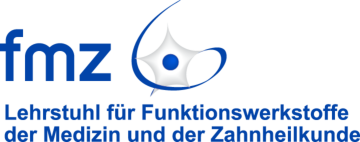Successful communication is the key to successful leading. To become a successful leader in the academic environment, it is necessary to acquire leadership skills in addition to scientific expertise.
To expand our communication and thus leadership skills, we have created a position for communication management at FMZ. This gives us the opportunity to specifically address topics of communication and (self-)leadership and to implement them in our department. It prepares our staff and especially our early career researcher for future management duties or PI positions in upcoming projects.
We see communication and (self-)leading as a sustainable and forward-thinking expansion of our training and see how it increases the motivation and the personal development of our employees. This helps improving our outcome and efficacy.
As PIs, we, the professors, working group leaders and post-doctoral students of our institute, are responsible for supporting our employees individually in their research activities, but also in their general development. To achieve this with the highest possible quality, we continue to evolve as a team and on a personal level. The deepening of the contents as well as an exchange about current leadership topics take place in a regular communication seminar.
The most important contents of the seminar are:
- Leadership skills
- Communicative competence
- Focusing on strengths and result-oriented working – Mentoring
- Responsibility
- Trust
- Leading change
To support our PhD students to become highly qualified scientists and competent managers, we also offer the opportunity for personal development in the context of communication and (self-)leadership to all PhD students interested in this. In a special PhD workshop process, our students learn how to lead themselves and their inner attitude. This supports them in maintaining their motivation, achieve the better results and in dealing with demanding situations by develop their individual solution strategies.
We are convinced that this additional training will have a lasting positive impact on the success of our doctoral students.
An overview of the most important seminar contents for doctoral students: – Focusing on strengths and results-oriented working
- Dealing with crises and fears
- Accepting guidance
- Finding solutions – making decisions
- Leading the doctoral supervisor
- Professional teamworking
- Learning to give and accept feedback
Contact person and responsible for our communication management:
Dr. Katrin Schlegelmilch
To achieve the demanding goals, we set for us and improve our communication and leading, we are happy to be also supported by a professional partner, the PONTEA AG.
